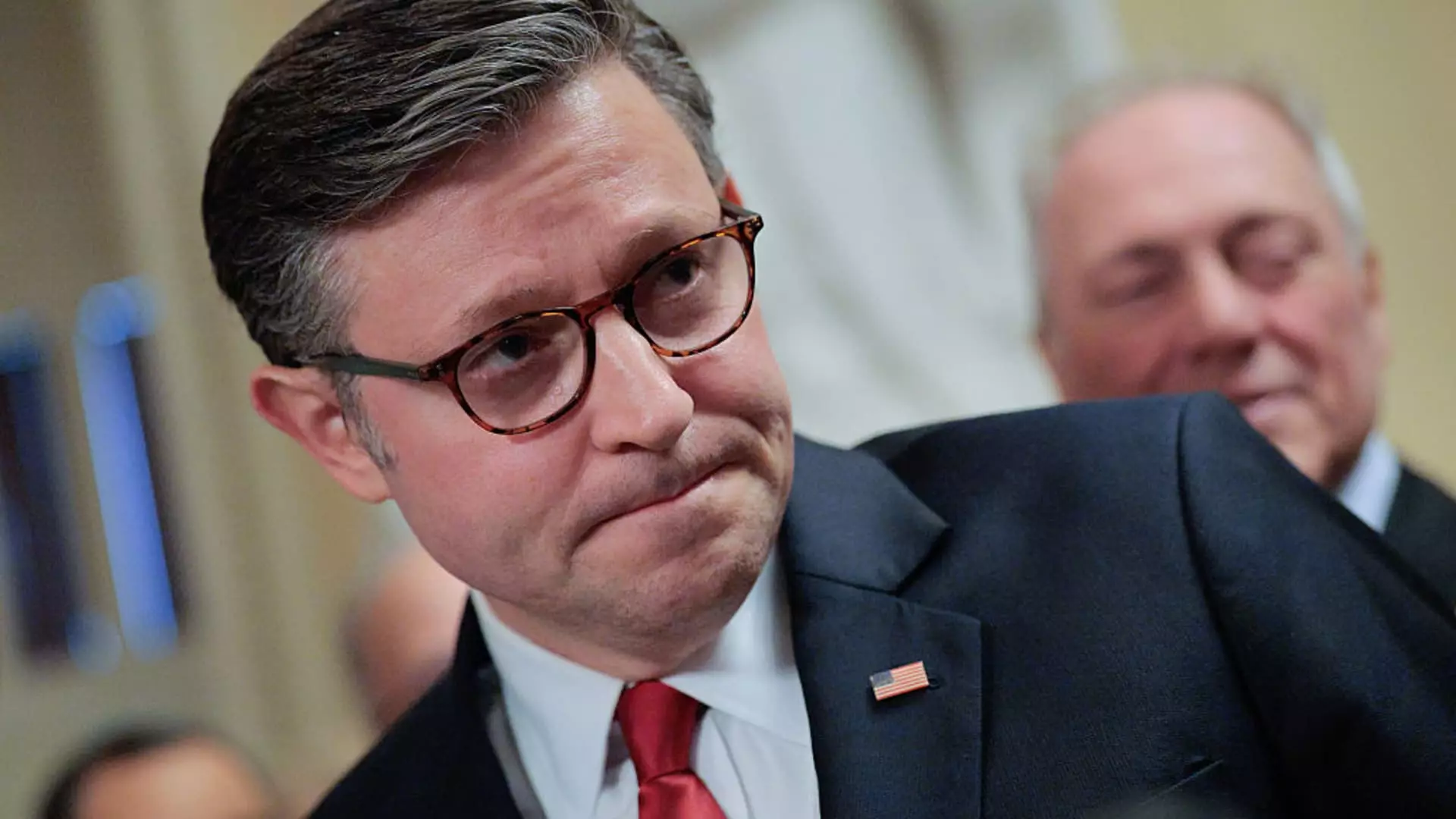In the latest chapter of U.S. political theater, the House of Representatives has narrowly advanced a mammoth tax and spending bill, emblematic of the deep fissures that characterize contemporary American politics. This legislation, championed by the Republican majority, reflects both the urgency and the fragility inherent in pushing through significant fiscal reforms amidst partisan discord. The spectacle was marked not only by procedural drama but also by internal fractures within the Republican ranks and overt opposition from Democrats, exposing the underlying instability of the legislative process when driven by narrowly divided coalitions.
What stands out as particularly troubling is the undercurrent of backroom negotiations and high-stakes maneuvering. Officially, House Speaker Mike Johnson expressed confidence and satisfaction, claiming that concerns from various factions had been addressed. Yet, such rhetoric glosses over the underlying reality: a bill pushed through with razor-thin margins, and a leadership struggling to manage divergent interests. The spectacle reveals a political environment driven more by strategic power plays than genuine consensus or policy clarity, leaving citizens questioning whether their representatives are truly acting in the public interest or merely in pursuit of political victories.
The Ideological Divide and Its Impact on Policy Outcomes
The conflict within the bill’s passage underscores not just procedural hurdles, but an ideological chasm that complicates rational policymaking. On one side, Republicans—eager to deliver on Trump-era tax cuts—are pushing for substantial benefits for the ultra-rich, asserting that economic growth hinges on favoring the wealthy and reducing social safety nets. On the other side, Democrats strongly oppose these measures, citing concerns about rising inequality, the erosion of vital social programs, and the disproportionate benefits accruing to the top 1%.
This stark divide risks reducing complex economic realities to simplistic narratives: either-side framing that neglects the nuanced needs of different demographics. The Democratic accusations that the bill favors billionaires and threatens health and nutrition programs resonate with an increasingly aware electorate that demands social justice and economic fairness. Meanwhile, Republican claims of fiscal responsibility and economic growth gloss over the long-term consequences of accelerated income inequality and potential social destabilization. The challenge is that such polarized debates undermine the possibility of crafting balanced policies that address both fiscal responsibility and social equity.
The Broader Implications: A System on Shaky Ground
Beyond the immediate legislative hustle, this episode symbolizes a broader crisis in the American political economy. The delicate dance of passing a bill that extends tax cuts, enhances border security, and slashes social programs reveals a system fundamentally ill-equipped to grapple with complex economic realities. The bill’s provisions, including deeper Medicaid cuts and a ballooning debt limit hike, threaten to compromise social safety nets that millions depend on, raising ethical questions about the priorities of our leaders.
Furthermore, the reliance on high-stakes votes, last-minute negotiations, and brinkmanship indicates a governance model that increasingly prizes political expediency over sustainable policy-making. This not only erodes trust in elected officials but also risks future economic stability. The fact that the final approval hinges on a narrow Senate vote, with Vice President Vance casting the tie-breaker, illustrates how fragile consensus has become, and how easily progress can be derailed by internal conflicts and partisan warfare.
Finally, the political dynamics exposed here demand sober reflection. When government acts primarily as a battleground for ideologically motivated factions, long-term planning suffers, and the needs of ordinary citizens are too often sacrificed to short-term political gains. If the nation’s leaders continue to prioritize partisan loyalty over pragmatic responses to economic challenges, the path ahead remains perilous, and the promise of sustainable prosperity remains elusive.


Leave a Reply